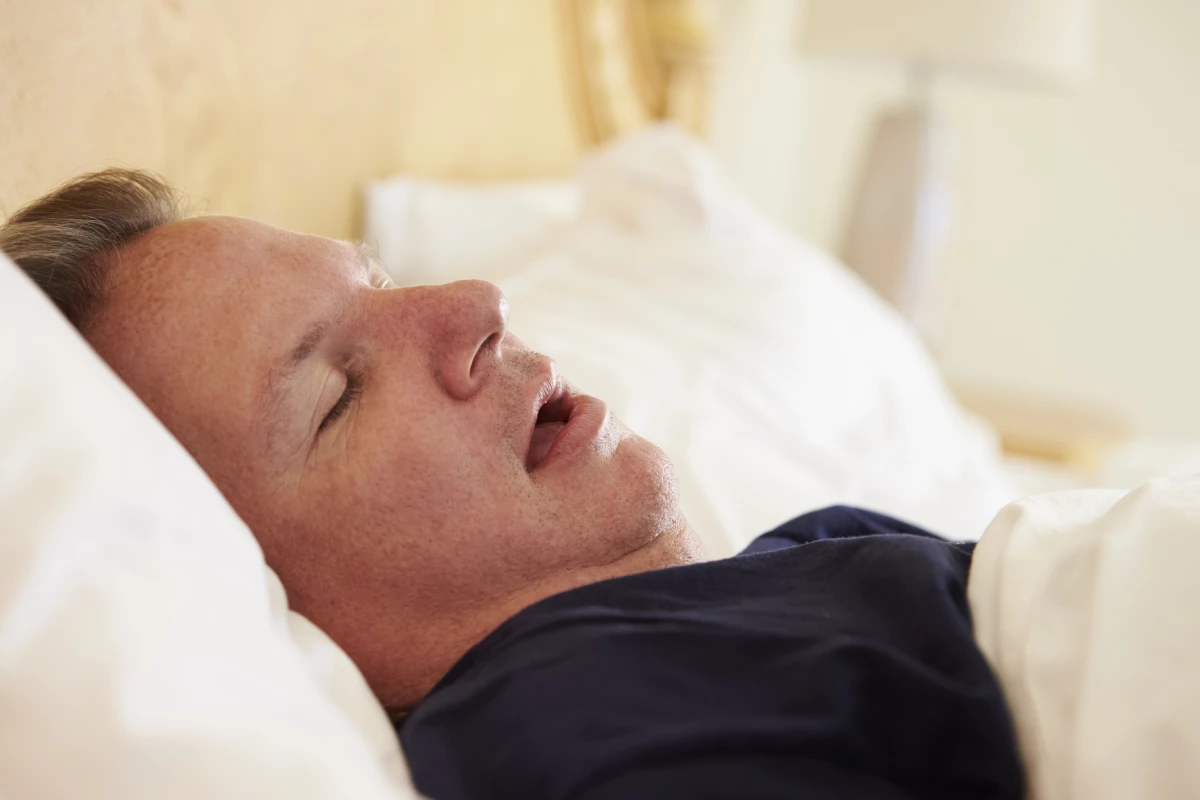An existing drug has shown it can significantly improve the quality of sleep for those suffering from obstructive sleep apnea (OSA), so much so that many trial participants were able to hang up their CPAP machines. It could be the first therapeutic to effectively treat the condition that affects an estimated 936 million people worldwide.
In a study of 469 participants with OSA and weight issues, researchers from the University of California San Diego's School of Medicine trialed the use of tirzepatide to improve sleep and quality of life. Currently, this drug is best known in treatment of type 2 diabetes and obesity, and is sold under the brand names Mounjaro and Zepbound.
"This study marks a significant milestone in the treatment of OSA, offering a promising new therapeutic option that addresses both respiratory and metabolic complications," said lead author Atul Malhotra, MD, professor of medicine at University of California San Diego School of Medicine and director of sleep medicine at UC San Diego Health.
The participants, recruited form nine countries including the US and Australia, were part of two Phase III, double-blinded, randomized, controled trials. They all had moderate-to-severe OSA and clinical obesity, and some regularly used a continuous positive airway pressure (CPAP) machine, while others were not receiving any treatment for their sleep disorder.
Each week, the participants received either 10 mg or 15 mg of tirzepatide via injection, or a placebo, and monitored for 52 weeks. Evaluation at the end of the year found that the drug significantly decreased the number of disrupted breathing events each night, which was used as the indicator of efficacy for OSA.
In the first trial, participants initially experienced an average of 51.5 disturbance events per hour of sleep. After 52 weeks, the tirzepatide cohort had 25.3 fewer events per hour. In the second trial, the initial average of 49.5 events had been more than halved, with an average of 29.3 fewer events per hour. The placebo cohorts in both trials also had reduced events, but only by 5.3 and 5.5 per hour, respectively.
"Historically, treating OSA meant using devices during sleep, like a CPAP machine, to alleviate breathing difficulties and symptoms," Malhotra said. "However, its effectiveness relies on consistent use. This new drug treatment offers a more accessible alternative for individuals who cannot tolerate or adhere to existing therapies. We believe that the combination of CPAP therapy with weight loss will be optimal for improving cardiometabolic risk and symptoms. Tirzepatide can also target specific underlying mechanisms of sleep apnea, potentially leading to more personalized and effective treatment."
The results are not a complete surprise to scientists, as OSA is much more prevalent in people who also have weight management issues. So a reduction in weight saw a corresponding reduction in sleep disturbances. However, tirzepatide didn't just affect weight; it improved the participants' cardiovascular health. Given that OSA sufferers are at an increased risk of heart disease and hypertension, due to a reduction in blood oxygen levels, this treatment could offer a broader range of benefits than existing sleep apnea treatment options.
Bear in mind, however, the best results came through consistent use of tirzepatide, which isn't without side effects – most notably, stomach issues, which have already been associated with this dual gastric inhibitory polypeptide (GIP)/glucagon-like peptide-1 (GLP-1) drug and other GLP-1 therapeutics such as semaglutide.
The study was also funded by Eli Lilly, the makers of Mounjaro and Zepbound.
Given the fairly recent arrival of these GIP/GLP-1 drugs, the researchers now plan another clinical trial to assess tirzepatide's long-term efficacy in treating OSA.
"This breakthrough opens the door to a new era of OSA management for people diagnosed with obesity, potentially transforming how we approach and treat this pervasive condition on a global scale," said Malhotra. "It means we can offer an innovative solution, signifying hope and a new standard of care to provide relief to countless individuals and their families who have struggled with the limitations of existing treatments."
The study was published in the New England Journal of Medicine.





